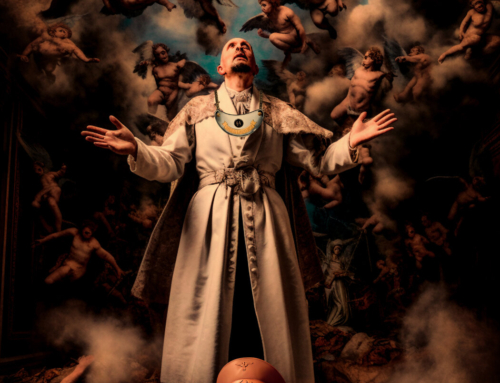After I became a Catholic, a former colleague in the Church of England asked, “Well, now that you’re a Catholic do you like the Catholic Church?”
I answered, “No. If I were choosing a church I liked I’d still be an Anglican. I didn’t choose the Catholic Church because I liked it. I chose it because it is the church Christ founded on earth.”
Yes, I know such a statement is hopelessly triumphalist, and I realize that even my fellow Catholics of a certain ilk shudder at such blithe pontifications by converts.
Nevertheless, it is true, and to show how true it is I might spend some time not trumpeting the triumphs of the Catholic Church, but saying just how very attractive the Church of England (and Anglicanism) really is, for like Mary Poppins who was practically perfect in every way, the Church of England is equally wonderful. It is a church you can like.
Of course one can focus on the superficial things. Thomas Merton has a purple passage in Seven Story Mountain where he asks what could possible be disagreeable about the Church of England–then goes on to show how the dear old CofE is woven into all that is middle class, lovely and awfully, awfully English. Cricket on the village green, the Christmas panto, jolly Beefeaters at the Tower of London, HMQ and all the royals, shortbread, lemon curd, the last night at the proms, pubs, a pint of ale and is there honey still for tea? The vicarage garden party, Nine Lessons and Carols, Evensong, crumbling village churches turned into poetry by John Betjemann and mellow cathedrals with comical characters from Trollope.
What can a sophisticated person dislike?
But the Church of England is practically perfect in other ways too. The Anglican Church seems to have kept all that is lovely about the Catholic faith and jettisoned all that is disagreeable. This applies in matters of taste as well as doctrine. So, for example, they have retained Evensong, but (for the most part) got rid of the monasticism from which it comes. They have retained tasteful statues of Our Lady of Walsingham, but are untroubled by the more tasteless apocalyptic apparitions to shepherd children in Ireland, Portugal or France. They have kept lovely cathedrals with tasteful art, but politely declined the souvenir shops that cluster in pilgrimage places with their racks of clacking rosaries, their hologram postcards of Jesus that turns into Mary and water bottles shaped like the Our Lady of Lourdes, whose crown unscrews so you can dash the holy water on demons.
While eschewing the tasteless aspects of Catholicism, they have also successfully selected from Catholic doctrine. They will have the Blessed Virgin, but not her Immaculate Conception, Glorious Assumption into heaven or her Coronation as the Queen of Heaven. They will have respect for the Pope–even some admiration, but they demur at calling him the Vicar of Christ and the infallible successor of St Peter the Prince of the Apostles. They allow for the creed to be recited–almost as a matter of choice, but dismiss the idea that there is such a thing as dogma which must be adhered to or else… Holy Communion is a lovely symbol which becomes the Body of Christ as you receive it, but one need not be troubled by something as literal and superstitious as transubstantiation. I could go on, but you get the idea.
This selective religion is practically perfect Protestantism because it also chooses what is tasteful and easily accepted from the Protestant side of the river. They allow for some Protestant practices–so you will find Anglicans who hold Bible studies, speak in tongues, and devise courses that cajole people to become born again Christians. You will find Anglicans who believe in a milk and water form of Calvinism, and even some who prefer adult baptism by immersion but these things are cherry picked from Protestantism.
What you won’t find are the unsavory extremes. Televangelists scuttling for money are sooo distasteful. Well born people don’t need to scuttle for money. The scions of the Church of England turn up their nose at the prosperity preachers mostly because they are rich already–still living off the rich pickings from the haul of Henry VIII who nationalized the Catholic Church lock, stock and barrel–including vast tracts of land still controlled by the Church Commissioners over five hundred years later. You won’t find the hellfire fundamentalists preachers, bigamists who live in mountain enclaves, snake handlers and wild eyed women fainting and sweating for Jeezus. Neither will you find the dour and dark Calvinists with their legacy of shame and blame. The English leave all that for their shivering neighbors in Scotland or the wilderness of Wales.
The Church of England is, it must be admitted, probably the most perfect form of Christianity ever devised. One of the most delightful things about the Church of England is that whenever there is a seeming clash with the culture, the Anglicans can be trusted to concede the point to the culture–always in an attempt to be relevant and in touch with where people are. Feminism undermines traditional patriarchy? Send in the women priests and bishops! Homosexualism seems to undermine traditional marriage? Of course not. When seen aright it actually complements traditional marriage by adding a new alternative and choice. Such syncretism is ultimately attractive and has the advantage of avoiding distasteful conflict and quarreling. While it doesn’t actually attract the enemies of Christianity it certainly serves to appease them.
By being a member of the Church of England one can combine patriotism with religion in a practically perfect way. To quote one famous Anglican, “The Church of England is so quintessentially English!” To love England, it would seem, is to love the Lord. One can therefore be a Christian in one’s own way, and that is surely the foundational genius of Protestantism, and in the Church of England it is perfected.
Indeed, “I did it My Way” might be the Sinatran creed on which the Church of England is built. It is, in fact, practically perfect Protestantism.
The extreme expression of this fundamental credal statement is that their modernist theologians and bishops have shown that it is perfectly practical and possible not only to disbelieve in the cardinal doctrines of Christianity, but even to be an agnostic or atheist and still retain your chair in theology at Oxford or the cathedra in your grand cathedral along with your salary, perks and pension plan.
The Church of England? Like Mary Poppins–what can you possible dislike about it?







Leave A Comment
You must be logged in to post a comment.